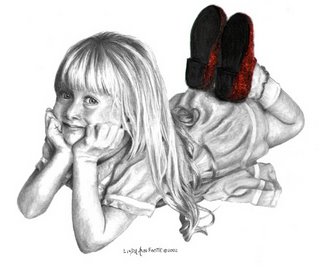A SADLY SOGGY STORY
Monday evening I was sitting on the couch in the living room of our lovely 1920 Arts and Crafts bungalow watching “24” with Ben, son #4. Suddenly I noticed that my pants were feeling a little wet. I moved a little bit and reached down to touch the couch and found a puddle of some sort of fluid there. Rats! Had old age caught up with me at last? Had my bladder finally failed me? I was suddenly stricken with a far worse thought. Was I bleeding rectally? At that moment, God reassured me as a falling drop of water hit my hand. At least I wasn’t bleeding out right then and there. Still, my stomach dropped and put a new pressure on my bladder! Where was the water coming from?
There is attic space immediately above the living room. Ben and I dashed upstairs and ran into the attic and flipped on the light. I looked over to the left side of the attic and there it was, a big pool of water surrounding the boxes containing my still packed up library! Panic struck! I dove through all the other boxes and started pitching boxes of books to Ben like I was a younger me. My socks were soaked and soon my pants were soaked as well. Ben ran down to the basement and started collecting buckets, plastic storage bins and old towels. We arranged the water receptacles and soaked up as much water as possible. It seemed like we caught it in time.
Yesterday afternoon Anne of the House and I were sitting in the dining room when one of the tiles from the drop ceiling in the living room (that drop ceiling has to be removed soon!) came crashing down on the Persian rug along with a large volume of water and the plaster from the original ceiling. Anne, who comes from a long line of blue collar type folks, started laughing at the mishap while I, a completely non-handy type of white collar guy, felt sick to my stomach. She chuckled the whole time she was up on the ladder poking holes in the plaster to relieve the water pressure. My stomach churned. All I could see were dollar signs. Sadly, all I have are dollar signs. No dollars to go along with them!
We knew we needed a new roof when we bought the place. I had just hoped to get through one more winter. Guess we didn’t make it. The culprit was ice dams on the roof. It warmed up this week. All the snow on the roof started to melt but before it could come off the roof it refroze during the night. Thus, all the new melting snow had no place to go except through my aged roof, attic, and living room ceiling. Ah, the adventures of buying an old house! Can you identify with me, OG? I refer you to Anne’s post of January 13.
I know there’s nothing you can do so thanks for listening.








